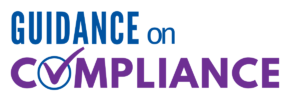The recent self-disclosed conduct to the Office of the Inspector General (OIG) by Team Rehabilitation Services (TRS) is a reminder of the importance of proper coding by physical and occupational therapists. TRS agreed to pay over $12MILLION for allegedly violating the Civil Monetary Penalties Law. There were issues identified with improper billing for time-based codes and for the specific CPT code of 97164, the re-evaluation code.
When coding time-based codes for Federal payors, or those payors who bill according to Federal regulations, the therapist must follow the 8-minute rule. In addition, the definition of one-on-one (1-1) must be followed. If the therapist is seeing more than one patient at a time, they cannot bill each patient for 1-1 codes. Direct supervision for 1-1 codes does not imply that you can literally “see” both patients at the same time. The definition of 1-1 means that the therapist is only treating one patient at a time.
In this day and age when customer service is so important, a therapist might not want to turn a patient away who arrives late for an appointment. However, in order to see that patient and code properly, either the appointment time must be shortened, or the codes should be changed to service-based codes. The group code, 97150 is one service-based option. The group code can be used when more than one patient is being treated at the same time. Based on audit history, most therapists do not choose to code the group code. Often what auditors see is that the therapist will bill fewer units than the 8-minute rule will allow for the time the patient is in the clinic. This tactic could appear to be a strategy to minimize billing two patients at the same time, however, it is not the appropriate strategy.
One way to find out if your therapists are appropriately billing 1-1 codes within the timeframe of the patient day is to perform a scheduling audit. When performing a scheduling audit, the auditors recreate the time in and out, the codes billed, and the units billed. Overlap of patients is identified to verify if what was billed 1-1 was possible and following regulations. A small sample of schedule days could identify trends between therapists and allow for training and/or modifications in scheduling. Not only the therapists need to understand the impact of 1-1 coding, but also the front desk schedulers need to reinforce the in and out times for Federal payors.
The other coding issue that was identified by TRS was the improper use of coding the re-evaluation code, 97174. The Centers for Medicare and Medicaid Services (CMS) has defined this code for specific re-evaluation situations. The repeated use of 97164 for every progress note, which is required every 10th visit, is not appropriate. The specific criteria for coding a re-evaluation include: According to the American Medical Association, 97164 denotes a re-evaluation of an established plan of care, which requires these components:
- “an examination including a review of history and use of standardized tests and measures;”
- “a revised plan of care using a standardized patient assessment instrument and/or measurable assessment of functional outcome;” and
- typically, 20 minutes face-to-face with the patient and/or family.
An internal audit reviewing the frequency and trending of this code should demonstrate increased and regular use. The next step would be a medical necessity audit to see if the documentation included the required components for coding the re-evaluation.
It is critical to educate new hire therapists to your practice as quickly as possible, even if they have work experience. The new hire education should go over coding and billing regulations. Be clear in definitions and examples. Then follow up and audit to ensure that coding is accurate.
Performing a sample scheduling audit goes a long way to see what is really happening in the clinic and how the therapist is billing. Just reviewing documentation on single patients will not identify overlap and improper use of 1-1 codes.
LWCI has experience in performing scheduling audits as part of proactive compliance surveillance, as part of voluntary disclosure effects as well as for providers under investigation. For more information, contact Kay Hashagen to discuss your needs by emailing Khashagen@lw-consult.com or calling (410) 207-8338.


